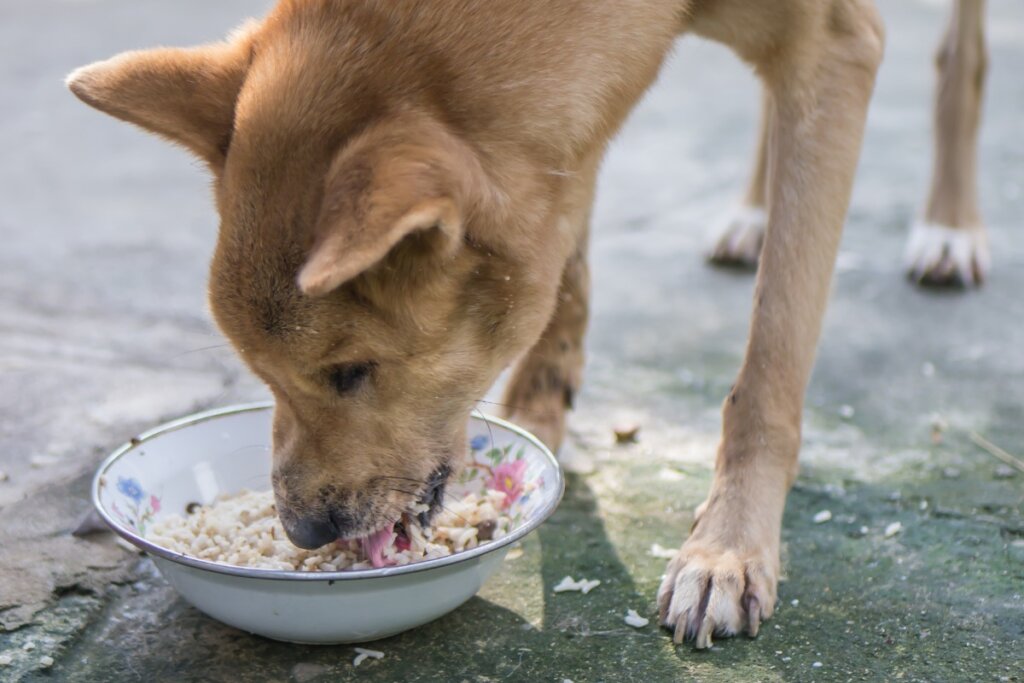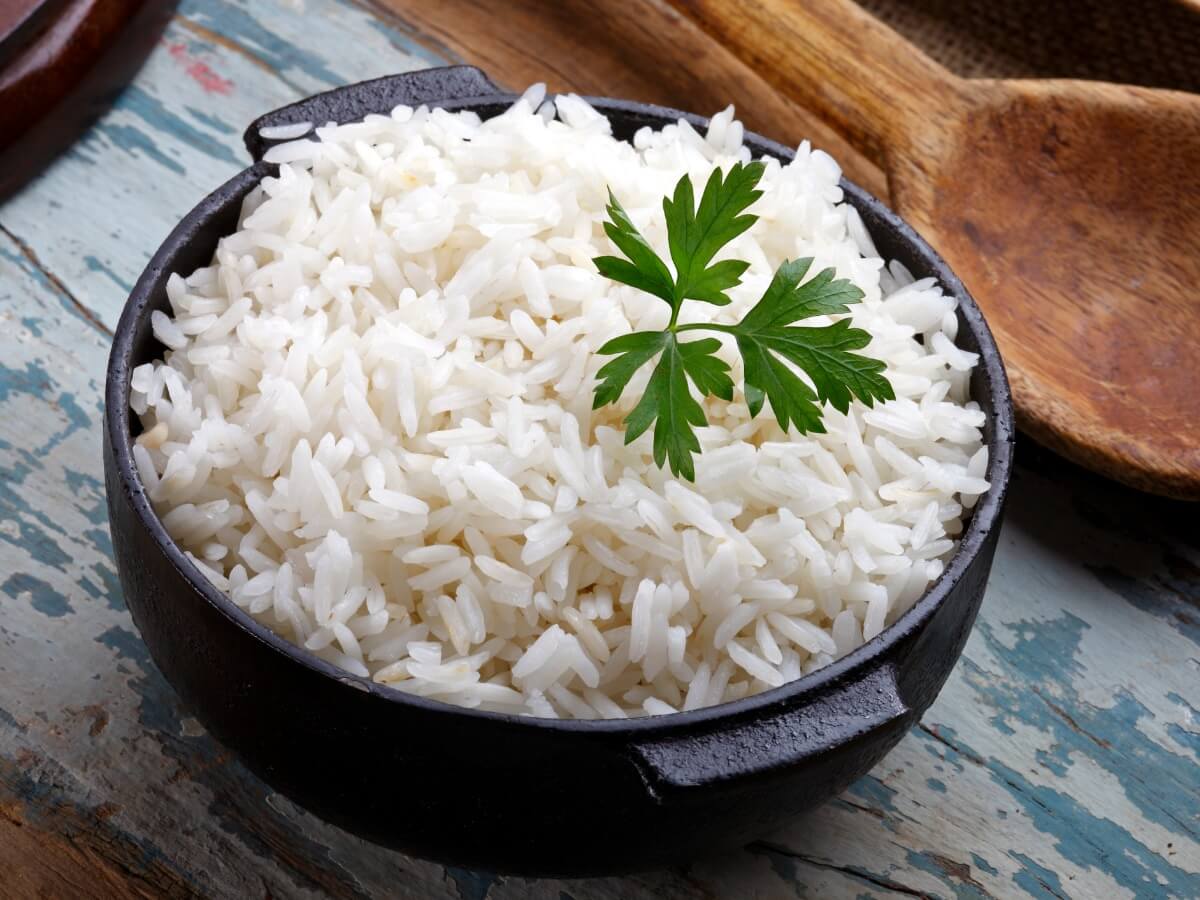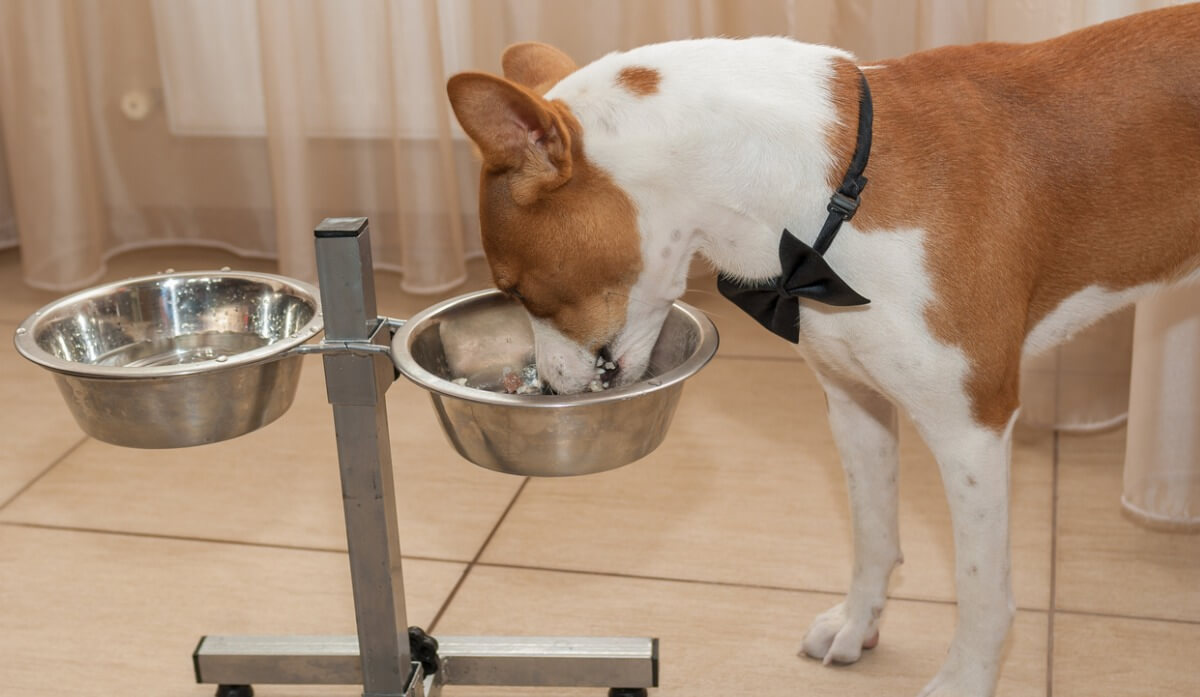Rice for Dogs: Should You Include It?
Many vets recommend moderate servings of natural foods for pets. Among their recommendations is rice, a common ingredient in the dinner of many households and a nutritious grain for dogs.

Dogs, due to their biological nature and their kinship with wolves, are classified within the food chain as carnivorous animals, therefore, their main food is meat. However, living with human beings for so long has turned them into animals that have got used to the way people eat.
Ever since they’ve lived with our species, dogs have adapted their digestive system to digest food that, due to their carnivorous nature, they wouldn’t consume if they lived freely. One of these foods is rice, a cereal that can contribute to canine well-being, provided it’s administered in the right doses.
Proteins in dog food
Before going into detail and confirming that rice for dogs is good for them, let’s make something clear: proteins mustn’t be lacking in any dog’s daily diet. Protein foods are the natural macronutrients that provide the basic amino acids for metabolism, and so they’re necessary for any pet dog.
In the same way, a dog’s food shouldn’t only be based on meat consumption. A dog is omnivorous, which means that, as well as meat, it can also consume vegetables, which are rich in vitamins, important for building a strong and healthy diet for your pet.
Any canine diet should be based on carbohydrates and protein as primary energy sources.

Dogs can eat rice
Dogs can eat cereals and, in fact, commercial feed contains ingredients from some cereals. Rice is one of the grains that the pet can consume, however, care must be taken when providing rice in the canine’s diet, in order to avoid allergic reactions.
In principle, rice for dogs doesn’t have any risk of intolerance for them – on the contrary. The consumption of this cereal is a source of carbohydrates, essential macronutrients to keep animals active with fast metabolisms. In addition, rice is low in fat, and therefore doesn’t make the canine overweight.
Benefits of rice for dogs
Rice is a cereal that provides advantages and benefits in the dog’s diet. Among them, we can highlight the following:
- Rice has a large amount of carbohydrates, which will fill the dog with energy with little or no weight gain.
- This ingredient is a sign of good quality in commercial feed.
- It contributes to an optimal balance in the dog’s diet, as this food doesn’t provide almost lipids, as indicated by the Spanish Nutrition Foundation.
- Rice contains lysine, an amino acid that’s very important for metabolism.
- This ingredient contains iron and manganese, microminerals that provide correct functionality in the canine’s body. In the veterinary clinic, an iron deficiency can be serious.
Rice for dogs is a nutritious food, but never base your dog’s entire diet on this ingredient. Always vary your food with meat products, animal feed, fruits, and a few vegetables.
What goes with rice for dogs?
When you cook the rice to feed the dog, you can accompany it with chicken meat or raw egg . This recipe constitutes a high nutritional value in your canine diet. Also, you can check with your vet how much is the right serving of rice for sick and healthy dogs.
These cereals are also a good food to treat any digestive or assimilation problems that the dog is suffering at the time.
Similarly, rice can help dogs suffering from inflammatory diseases such as canine IBD, as this grain is ideal to supplement low-fat diets. These nutritional plans are necessary to treat the pathology, according to studies.

Why is rice good in a dog’s diet?
The coexistence of dogs with humans for so many centuries has led them to adopt survival qualities, such as eating the leftovers of their owners’ food. This has caused an evolution of their digestive system and, as a result, they now accept foods that weren’t on their menu before.
In any case, the fact that rice for dogs is a nutritional alternative doesn’t mean that all cereals will also be suitable for their diet. For example, wheat or corn aren’t nutritionally beneficial for the dog. If you have any questions about your pet’s diet, make sure you consult a veterinarian.

